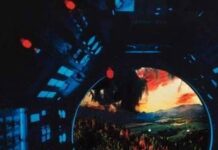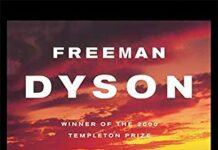
Ebook Info
- Published: 1999
- Number of pages: 112 pages
- Format: PDF
- File Size: 0.92 MB
- Authors: Freeman Dyson
Description
How did life on earth originate? Did replication or metabolism come first in the history of life? In this book, Freeman Dyson examines these questions and discusses the two main theories that try to explain how naturally occurring chemicals could organize themselves into living creatures. The majority view is that life began with replicating molecules, the precursors of modern genes. The minority belief is that random populations of molecules evolved metabolic activities before exact replication existed. Dyson analyzes both of these theories with reference to recent important discoveries by geologists and chemists. His main aim is to stimulate experiments that could help to decide which theory is correct. This second edition covers the enormous advances that have been made in biology and geology in the past and the impact they have had on our ideas about how life began. It is a clearly-written, fascinating book that will appeal to anyone interested in the origins of life.
User’s Reviews
Reviews from Amazon users which were colected at the time this book was published on the website:
⭐This book is about the history of theories on the origin of life. It is suggested that genes came after replication of molecules. Dyson, therefore, is of the opinion that life began twice, first came cells and later, genes. The book is written for the nonspecialist reader. It features an abstract mathematical theory , on the origin of life, that is so simple it must not be true. However, it combines those features of life that Dyson feels are essential. That is, looseness of structure and tolerance of errors. Dyson claims this looser view of evolution is supported by past experiments in microbiology. A final point made is that ,quasi – random structures are more important in evolution, than the Darwinian competition of replicating monads. I cannot help but note the somewhat humorous discussion on , junk DNA, and its useless biological role in life. Perhaps jokingly, Dyson suggests an analog in human culture where , ” junk culture ” is replicated. Examples include television commercials and political propaganda. I conclude this review with my assessment that Dyson was a genius to write these 77 pages of rather challenging theories. Unfortunately, it may take another genius to fully understand this book. I failed in this regard, but I learned much ! It is a great book that might jump – start new approaches to explaining the origin of life on Earth. Curiously, Dyson did not mention the concept of entropy. The book needs a Glossary.
⭐The great mathematical physicist and famous essayist has looked at origins of life in this very short book. It is based on lectures given in 1985 on work some time before then, so it would appear to be dated. And in some ways it is – some more recent books, e.g., by Nick Lane (awesome!), have much more detail and much fuller stories. But then again, that’s what it’s always like to be a theoretician. You look at physical basics, energy, etc., and build a model. And then see what falls out with respect to matching existing data and making experimentally verifiable predictions. The main question explored is on replication through information storage versus metabolism. Which came first. Dyson proposes a dual origin (of SW & HW, parasite and host). Dyson writes nicely about previous work, even if some of it is a bit biased towards the “great person” view of history. But the bulk is presenting a simple model of metabolism, the plausibility of its origin, and experiments that could give some answers.
⭐Very nicely written and accessible. It is a pretty short book, I didn’t realize that when I ordered it.
⭐A very thoughtful discussion of possible origins of life from a physicist’s point of view. Dyson believes in a double origin of life, that metabolism preceded replication (which came along as a “parasite”). In the third of four chapters he outlines a mathematical model of how stability may have been achieved in metabolic cycles. In the final chapter he credits Richard Dawkins with brilliant insight, even though disagreeing with him on which came first.
⭐New ways of looking at how life evolved in our pre-Cambrian world.
⭐I could not get through even the first chapter of this short book because the author is such a pompous bore. The preface begins with “The delivery of my Tarner Lectures in Cambridge happened …” and on he goes filling the pages with whatever else that I could not care less about. At least 80% of the sentences in this book should have been deleted. Of the remaining 20% I could not tell you if there was anything there of value; I was constantly losing the battle in falling asleep. A real shame because I really wanted to find out if this author had anything important to share.
⭐Interesting book, easy to get through if interested, hard to get through if not at all interested
⭐A great book. I mislaid my first copy so I needed another.
⭐Great book
⭐I don’t have much knowledge on the origin of life at the molecular level, so this book gave me some excellent directions to think about this problem. This book is fairly easy to understand if you have a high school background in biology/chemistry/physics, but even if you don’t, the author explains the basics, so I think it is fairly accessible to most people.The book is a modern synthesis of past ideas and lays out the arguments for life starting off from the dynamic between organisms that are well adapted to their environments and organisms that parasitize on the former. Most scientists nowadays believe more in the RNA world hypothesis than Dyson’s Dual Origin, so it was very helpful for me that he listed out numerous arguments against his opponents. I was thoroughly convinced of the Dual Origin hypothesis by the end of this book, because it is just one of those explanations that simply makes so much more sense compared to alternatives. Not everything in the book might turn out to be right like how Darwin got a lot of things wrong in his books, but I am fairly certain this is the correct direction in how we should think about how life started.
⭐This is a very short and sweet paper on evolution and genetics, lots of useful facts and leads if you’re just starting to learn about this topic. Must have for the collection.
⭐Well-written,gives me facts re theories of evolution that i hadnt come across before but not as much on information in the context of evolution (which is my current interest) as I had hoped.
Keywords
Free Download Origins of Life 2nd Edition in PDF format
Origins of Life 2nd Edition PDF Free Download
Download Origins of Life 2nd Edition 1999 PDF Free
Origins of Life 2nd Edition 1999 PDF Free Download
Download Origins of Life 2nd Edition PDF
Free Download Ebook Origins of Life 2nd Edition




